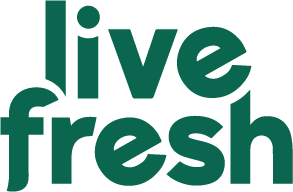Die Ernährung ist ein zentraler Bestandteil unseres Lebens, und immer mehr Menschen suchen nachWegen, bewusster zu essen, ohne auf Genuss zu verzichten. Ein Trend, der in den letzten Jahren stark an Bedeutung gewonnen hat, ist die flexitarische Ernährung. Doch was bedeutet es, ein Flexitarier zu sein? Und warum entscheiden sich so viele Menschen für diesen Lebensstil? In diesem Beitrag erfährst Du alles, was Du über die Flexitarier-Bedeutung, ihre Ernährungsweise und die Vorteile dieses Trends wissen musst.
Flexitarians: What is that?
The term "flexitarian" is made up of the words "Flexible" and "Vegetarian" together. A flexitarian is therefore someone who eats predominantly plant-basedbut occasionally consumes meat or fish. In contrast to vegetarians or vegans, flexitarians do not completely abstain from animal products, but consciously decide when and how often they eat animal foods such as meat.
Further information on veganism: Vegan for beginners - 10 tips
Flexitarian nutrition - the basic idea
The flexitarian diet is based on the Principle of flexibility. The aim is to Reduce meat consumption without eliminating it completely.
The focus is on a varied, plant-based diet that
is supplemented by high-quality animal products.
Why do people opt for a flexitarian diet?
Is this food trend actually healthy? The reasons, Why people become flexitariansare diverse. They range from health benefits and environmental protection to ethical considerations.
Health benefits
A plant-based diet is combined with numerous health benefits associated, including:
- Reduced risk of cardiovascular disease
- Better weight control
- Improved intestinal health due to a higher
Dietary fiber content
By consuming meat only occasionally, flexitarians can reduce the Health risks of high meat consumptionas increased
cholesterol levels or high blood pressure.
Sustainability
Meat production is one of the largest Greenhouse gas emitters and consumes enormous amounts of water and land. By reducing their meat consumption, flexitarians contribute Active environmental protection with.
Ethical considerations
Many people would like to Eat less meat for the sake of the animalsbut not
do without it completely. The flexitarian diet allows you to consciously to pay attention to the origin of meat products and sustainable,
animal-friendly alternatives.
What does a flexitarian diet look like in practice?
The flexitarian diet is Extremely versatile and offers plenty of scope for personal preferences. Here are some practical tips on how you can integrate them into your everyday life:
Focus on plant-based foodsThe majority of meals should consist of vegetables, fruit, whole grain products, legumes, nuts and seeds. These foods provide important nutrients such as Dietary fiber, Vitamins and minerals.
- Quality instead of quantityWhen meat or fish is served, it should be of high quality. Organic products or meat from species-appropriate husbandry are preferred. This ensures that the consumption is sustainable and ethical.
- Experimenting with plant-based alternativesNowadays there are a variety of delicious plant-based alternatives to meat and dairy products, such as tofu, tempeh, seitan or oat milk. These can be easily integrated into many recipes.
- Consciously plan for meatFlexitarians often use meat as the highlight of a meal rather than as a daily staple. A fixed "meat day" per week can help you to eat more consciously.
In search of delicious vegan recipes? In our Blog you will find a lot of healthy Recipe ideas to try out for yourself.
Advantages of the flexitarian diet
The flexitarian diet combines the benefits of a plant-based diet with the flexibility to enjoy animal products too. Here is an overview of the most important advantages:
Health-promoting
Studies show that a plant-based diet has numerous Positive effects on health has. Flexitarians benefit from these advantages without having to give up meat completely.
Sustainable and resource-saving
Reducing meat consumption helps to reduce the CO₂ footprint, Conserving water resources and the Minimize the destruction of habitats.
Variety and enjoyment
The flexitarian diet invites you to try out new recipes and to Discover the diversity of plant-based cuisine. At the same time there is room
for traditional dishes with meat or fish.
Simple and suitable for everyday use
In contrast to strict diets such as veganism, the flexitarian diet requires No radical changes. She is Easy to integrate into everyday life and makes it possible to decide spontaneously.
Criticism and challenges for flexitarianism
Despite the many advantages, there are also some Challenges
for flexitarians:
- Create awareness: It can be difficult to break old habits and consciously choose plant-based alternatives. Help here Planning and motivation.
- Nutrient balance: If you cut down on meat, you should make sure you get enough protein, iron and vitamin B12 from plant sources or food supplements. All information on vegan food pyramid can be found in our blog.
- Social pressure: In some social contexts, such as family celebrations or restaurant visits, it can be difficult to implement the flexitarian lifestyle.
Tips for starting out as a flexitarian
- Start slowlyStart with one meat-free day per week and gradually increase the number.
- Plan in advanceExperiment with new recipes and shop consciously to favor plant-based dishes.
- Inform yourselfRead about nutrients in plant-based foods to balance your diet.
- Stay flexibleIt's not about perfection, but about a conscious approach to food.
The vegan LiveFresh food cleanse can support you perfectly. The food cleanse consists of balanced dishes - 100% natural and vegan. So you don't have to worry about what to eat as a flexitarian at the beginning. The cleanse is optimally matched to it, Provide you and your body with the necessary nutrients and vitamins and to avoid animal-based foods
do without. The included guide also offers you Useful tips and tricks
for entry into a Permanently healthy and plant-based diet.
Conclusion: Flexitarians - The perfect middle ground
Flexitarians are flexible vegetarians. The flexitarian diet thus offers a
ideal balance for all those who eat a healthy, sustainable and enjoyable diet
without having to follow strict rules. By limiting the consumption of
meat, flexitarians make a contribution to important contribution to the environment and their health. At the same time, there is room for culinary enjoyment and flexibility in everyday life.
Are you ready to take the first step and Advantages of this nutritional trend discover it for yourself? Whether you are just starting out or already have some experience - the flexitarian diet is a simple and sustainable way to a more conscious lifestyle.
Try it out and discover the diversity of plant-based cuisine!
Das könnte dich auch interessieren

Dr. Ulrike Fischer
Nutritionist
Developed on a scientific basis by Dr. Ulrike Fischer, who holds a doctorate in nutritional science.
Die Ernährung ist ein zentraler Bestandteil unseres Lebens, und immer mehr Menschen suchen nachWegen, bewusster zu essen, ohne auf Genuss zu verzichten. Ein Trend, der in den letzten Jahren stark an Bedeutung gewonnen hat, ist die flexitarische Ernährung. Doch was bedeutet es, ein Flexitarier zu sein? Und warum entscheiden sich so viele Menschen für diesen Lebensstil? In diesem Beitrag erfährst Du alles, was Du über die Flexitarier-Bedeutung, ihre Ernährungsweise und die Vorteile dieses Trends wissen musst.
Inhalt







